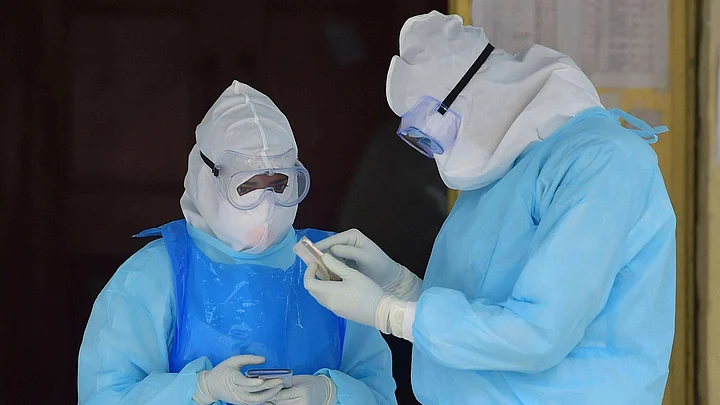The Indian Council of Medical Research (ICMR) said that the contacts of confirmed cases of COVID-19 need not get tested unless they are identified as 'high risk' based on age or comorbidities, in a new advisory issued on Monday, 10 January.
Who needs to get tested and who doesn't? Who are at risk? What are the guidelines for hospitals?
Who doesn't have to get tested?
According to ICMR, the following individuals need not get tested:
Asymptomatic people.
People who ended home isolation (as per guidelines).
People discharged from COVID-facility (as per guidelines).
Contacts of confirmed cases (unless at high risk).
Individuals undertaking inter-state travel.
Who may take a test?
Individuals may take a test if they are:
Symptomatic.
At-risk contacts of confirmed cases.
Undertaking international travel (as per country-specific guidelines).
International travellers arriving at Indian airports, seaports, or other ports of entry.
Who are considered 'at-risk' persons?
Individuals aged over 60 years and/or having any comorbidities like diabetes, obesity, chronic lung or kidney disease, hypertension, etc., are considered to be at risk.
The ICMR further suggested that all symptomatic patients and at-risk contacts should get tested at the earliest.
What are the guidelines for hospitals?
As per the advisory:
No emergency procedure (including surgeries and deliveries) should be delayed for lack of test.
Admitted patients should only be tested once a week.
Hospitals must make arrangements to transfer samples to testing facilities, mapped to the health facility.
Asymptomatic patients undergoing surgeries and pregnant women in labour should not get tested for COVID-19 unless symptoms develop.
What tests can be conducted to detect COVID-19?
The following tests can be undertaken to detect COVID-19:
RT-PCR
TrueNat
CBNAAT
CRISPR
RT-LAMP
RAT (Rapid Antigen Test)
Rapid Molecular Testing System
What should I do if I test positive in a Home Test or RAT?
If you test positive, you should report as positive immediately.
However, if you test negative but still develop some symptoms, you should send a sample for an RT-PCR retest.
(At The Quint, we question everything. Play an active role in shaping our journalism by becoming a member today.)
